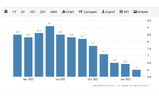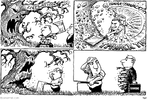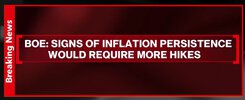- Joined
- 20 July 2021
- Posts
- 11,646
- Reactions
- 16,216
so what did the bond prices do ??"If we have to raise rates more than expected, we will".
Markets PLUMMETED in response. +1.1 to -1.17 on the NDX and still dropping.
Edit: Close 1.6 into the red. Lol.
remember both the Treasury and distressed banks need to SELL bonds .. but who is buying ??
plummeting bond prices ( or no buyers at all ) means the Fed has to QE 'or else ' ( the merry-go-round stops )
some banks will hold bullion but i doubt selling that will fill the hole



